Know Your Doors: Transitional Doors
Know Your Doors: Transitional Doors
By Hull Historical
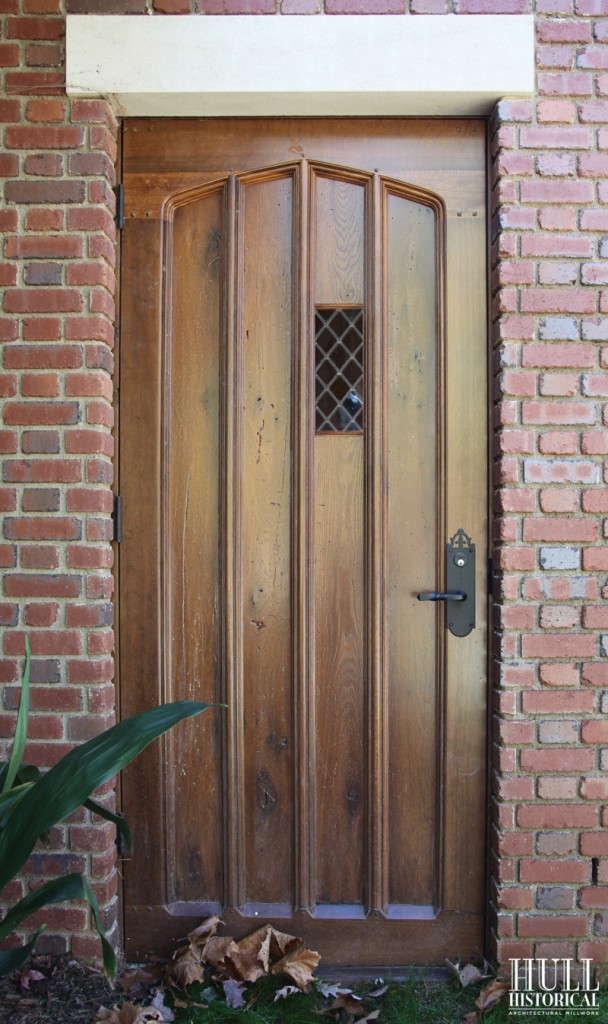
Transitional doors are early doors like plank doors but are usually constructed with an overframe that helps hold the boards together more firmly.
A transitional door may be thought of as a “refined” or “fancy” plank door. Nails with decorative heads are usually seen on these doors. Doors of this type developed in the Medieval and early Renaissance period and are appropriate for a variety of styles.
This is a transitional oak door with vertical planks hidden behind a Gothic overframe. The door itself is square, but the overframe has a four-centered arch.
.
.
.
.
.
Characteristics of Transitional Doors Include:
Overframe: a grid of horizontal and vertical boards is applied to the front of a set of plank boards to create an overframe. The overframe helps hold the boards together more tightly.
Nails: Holding the overframe and boards together, the pattern of nails reveals the construction method. Decorative heads add more refinement than simple cinch nails.
Boards: Like plank doors, boards of wood are laid up side by side to form the body of the door.
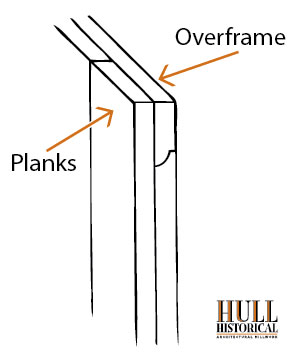
.
.
.
.
.
.
.
Examples
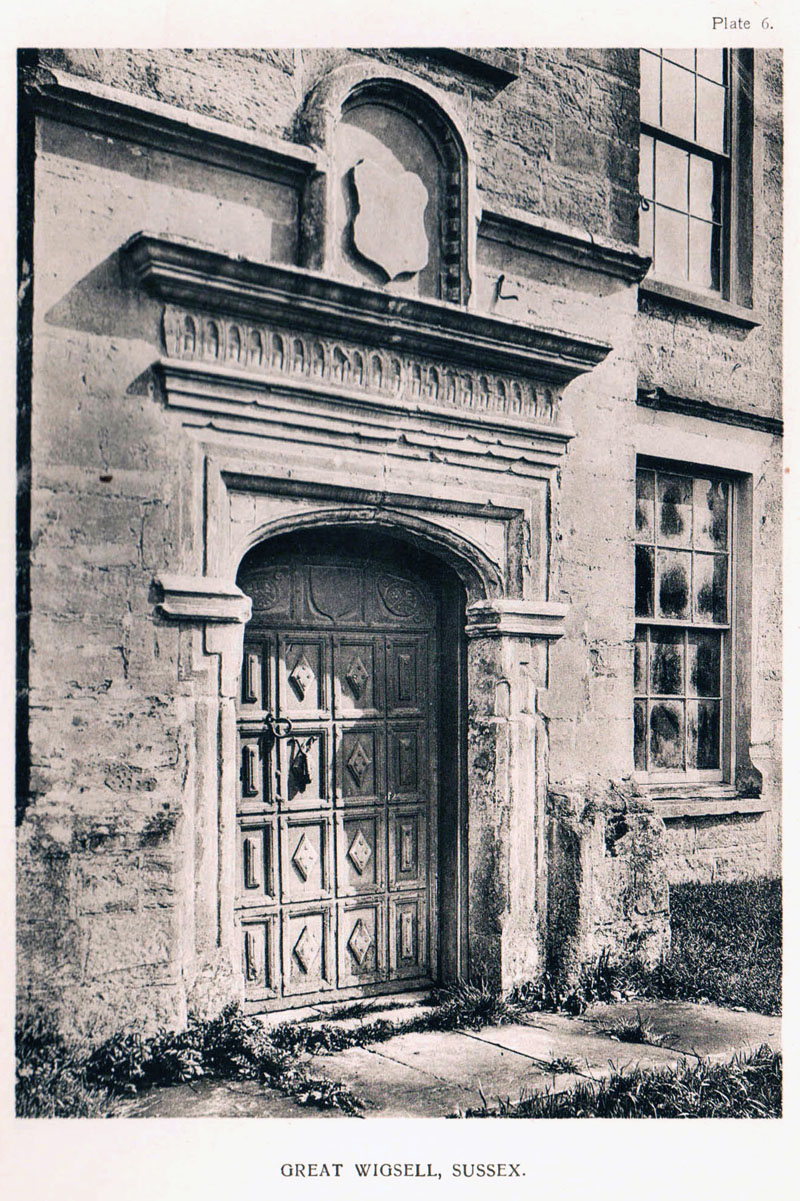
.
.
.
.
This door has diamond and rectangular shaped ornamentation between each section of the overframe.
From Old English Doorways by W. Galsworthy Davie & Henry Tanner Jr., 1903.
.
.
.
.
..
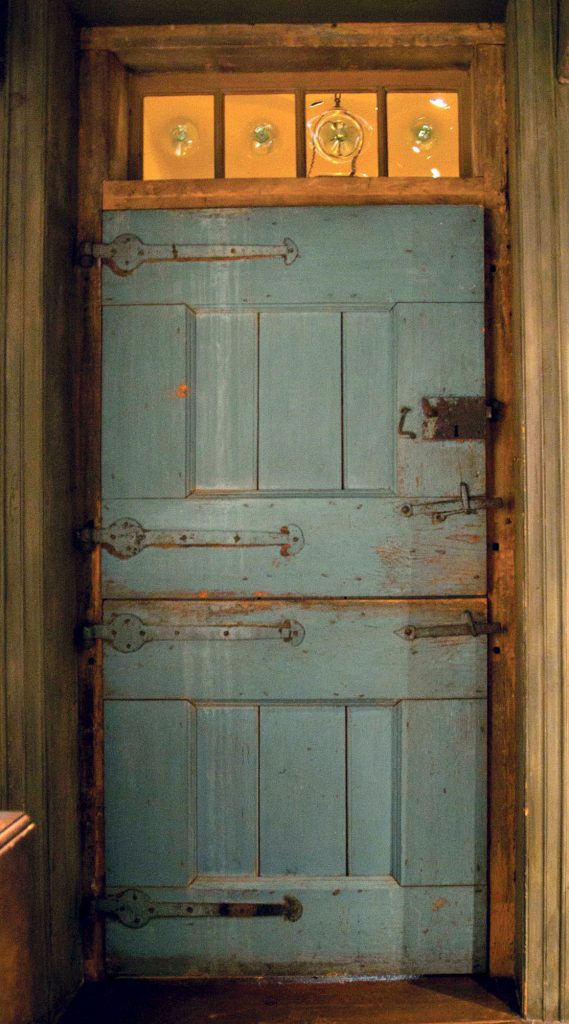
This Colonial style Dutch door with fine wrought iron hardware is an example of an early transitional door. Built in 1762 of Eastern White Pine, a simple frame on the backside keeps the door planks from twisting.
.
.
.
.
.
.
.
.
.
.
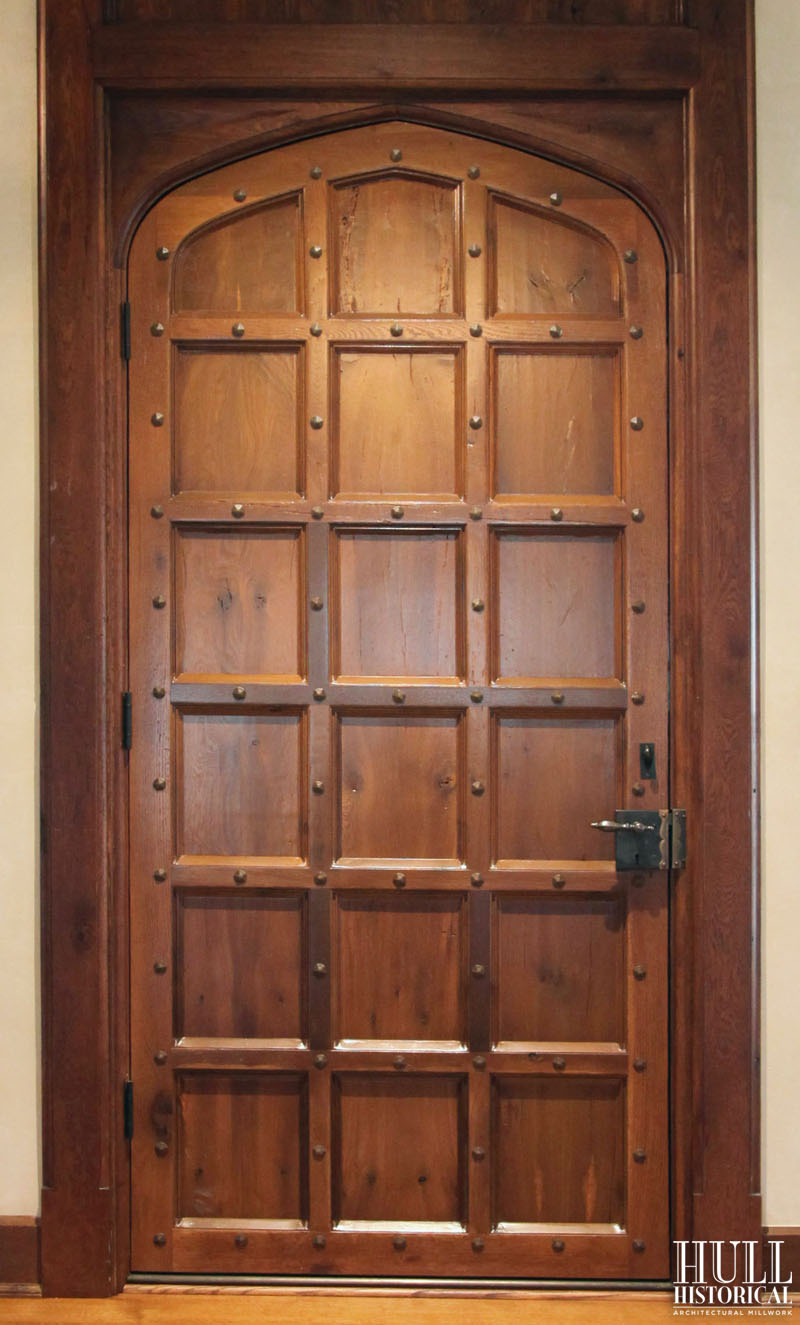
This transitional oak four-centered arched door was made for an English style home in South Carolina. It has an overframe fastened with decorative nails, carved spandrels and European hardware.
.
.
.
.
.
.
.
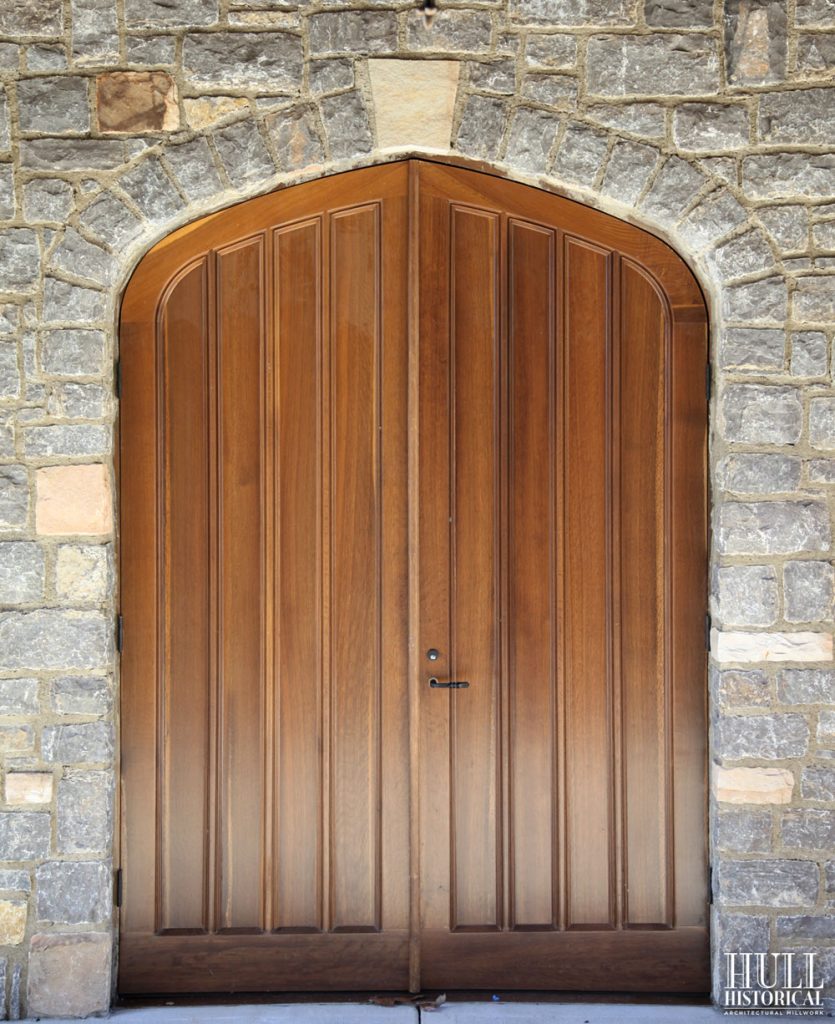
A pair of transitional oak four-centered arched doors on the garage of the same home in South Carolina.
Windows are not typical in transitional doors as they weaken the strength of the construction.
.

